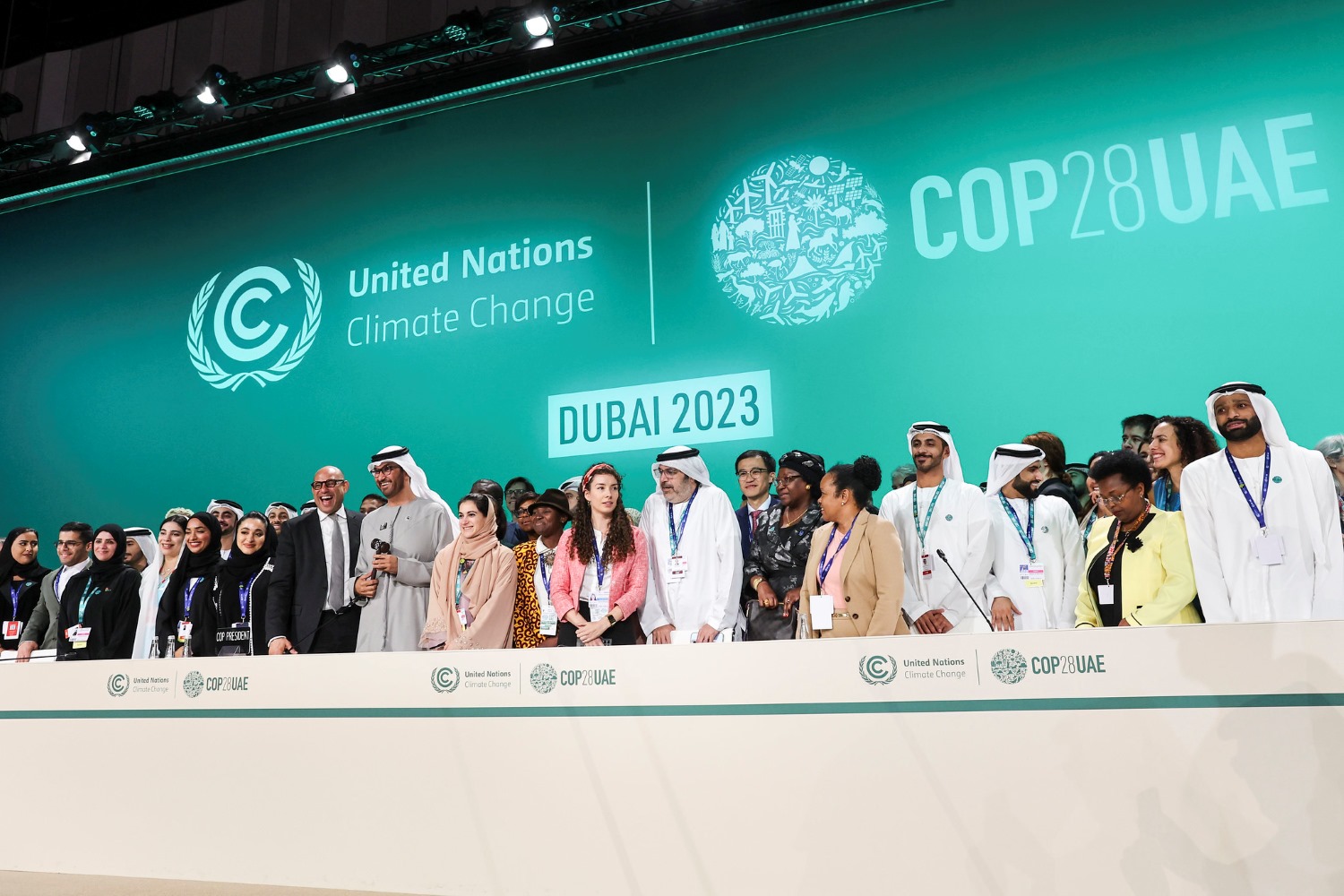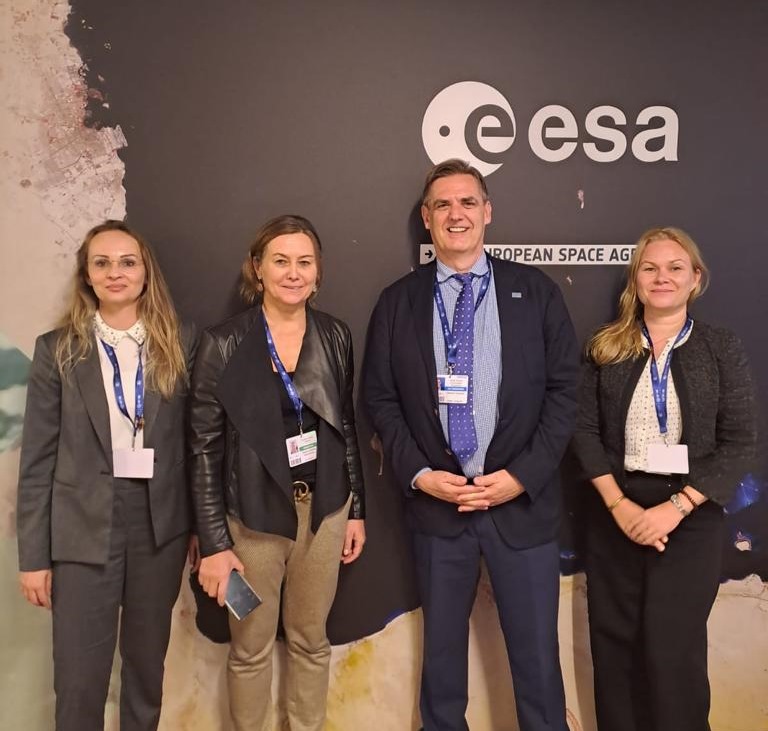Φ-lab contributes to COP 28 discussions on role of AI4EO in health, climate adaptation and risk management



Φ-lab contributed to the recent United Nations COP 28 Climate Change Summit in Dubai, sharing ESA’s experience in tackling climate issues through AI-driven modelling and analysis of Earth observation (EO) data. The team played a major role in sessions on climate adaptation in the areas of health monitoring and risk transfer mechanisms.
COP 28, the 28th meeting of the Conference of the Parties, is the UN climate change forum that took place between 30 November and 13 December in Dubai. With over 70 000 delegates from around 200 countries, COP 28 was a truly worldwide gathering that included the first ever global stocktake on climate change.
ESA has or is developing a number of EO climate-related activities that provide valuable insight to scientists, the private sector and policy makers alike, notably the RECCAP-2 and World Emission projects and the Copernicus Sentinel-5P and Anthropogenic Carbon Dioxide Monitoring missions. Within ESA’s Directorate of Earth Observation, Φ-lab has established a formidable reputation as a centre of excellence for transformative innovation, facilitating groundbreaking EO research through enabling technologies such as machine learning and edge and quantum computing.
One of the objectives of the COP global stocktake is to evaluate our collective progress towards climate adaptation, a theme that was taken up in many sessions at the conference, including two that benefited from Φ-lab’s expertise. Satellite Technologies for Climate Adaptation and Health was organised by the ESA Climate Office and chaired and led by Φ-lab AI Applications Lead Rochelle Schneider, a researcher with extensive experience in health monitoring and prediction in projects such as UNICEF-Φ-lab dengue fever modelling.

Rochelle’s talk began by citing World Health Organisation (WHO) statistics on predicted future climate-related fatalities and current levels of poor air quality. The discussions then went into detail on the role of satellites in providing a fundamental source of environmental hazard and air quality data. When these data products are fed into machine learning models, the result is high-resolution air pollution maps of cities and countries that both highlight areas surpassing WHO guideline limits and enable the assessment of human exposure to such pollution.
In their concluding remarks, Rochelle and fellow speaker Maarten Kappelle of UNEP’s Science Division underlined the importance of data scientists and a broad spectrum of experts joining forces to improve how society combats climate change. In this way these multidisciplinary teams will be able to inform adaptation strategies and directly contribute to public health policies.
Rochelle also took part in the Collaborative Futures: Bridging Gaps with AI and EO in Climate Risk Management and Adaptation session. Here the panellists discussed the potential for AI and data from space to aid adaptation through insurance and financial mechanisms, with particular emphasis on the part that the private sector has to play in providing new solutions for climate risk management. In fact this is a strategic development area for the EO industry, which ESA is addressing and supporting via the InCubed commercialisation programme.
The session included several examples of how AI modelling can help overcome challenges for the risk transfer industry in data gaps and accessibility, leading to the possibility of innovative insurance products to help protect exposed communities.
Both panellists and audience were surprised to hear that AI onboard satellites, rather than being a future development, is already a reality at ESA. Rochelle gave examples of the Agency’s extensive work in this area, including Φ-lab-led projects like RaVAEn, FDL NIO and Cognitive Cloud Computing in Space.
“It’s clear that useful climate monitoring is not possible without the global, near-real-time measurement that Earth observation affords,” Rochelle remarked in summing up her participation. “But as these discussions at COP 28 have shown, when we add AI to the mix, we can create a pipeline that takes raw data, processes it intelligently and creates models of trends, empowering governments, institutions and commercial enterprises in their climate-action decision making.”
To know more: Φ-lab, InCubed, ESA Climate Office, COP 28, UNEP
Photos courtesy of UN Climate Change and Maarten Kappelle
Share